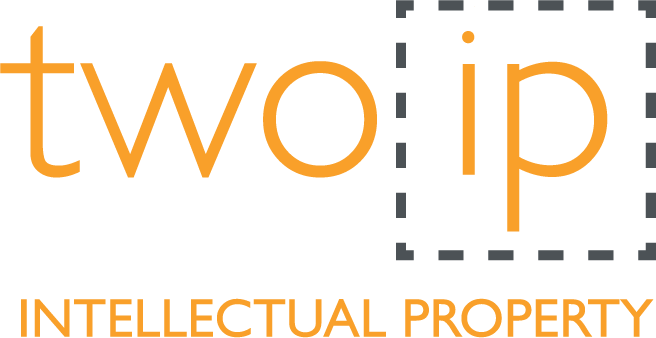The Digital Services Act (hereafter “the Act”, or “the DSA”) is a huge leap forward in the regulation of online intermediaries. Approved on 27 October 2022, the Act (Regulation (EU) 2022/2065, DSA) began to come into effect in February 2023.
Organisations including social media platforms, marketplaces and search engines face increased obligations relating to trader verification and transparency, monitoring and reporting of illegal content or products, and advertising. And the bigger the organisation, the wider the obligations.
The Act applies to providers of digital services to EU consumers (whether based in the EU or not), with fines for non-compliance set at up to 6% of a provider’s annual turnover. Its intention is to protect consumers from illegal or harmful content in any form, but the impact on counterfeit goods and on brands affected by this ever-increasing problem could be enormous.
Liability of online intermediaries has been limited until now, creating ambiguity and frustration for brand owners tackling counterfeit goods and illicit content, with platforms not adequately held to account. The new requirements are set to change that, to the benefit of brand owners and consumers alike. Although only applicable to the EU market, the changes required by providers will doubtless be adopted across other territories, whether voluntarily by the provider or enforced under local supporting legislation. Similar legislation for retailers is being rolled out in the US, in the form of the Integrity, Notification and Fairness in Online Retail Marketplaces (INFORM) for Consumers Act which was made law in late 2022.
The EUIPO recently held an informative webinar detailing the changes and their impact on online service providers, and we share some of the key points in this article.
It showed a fascinating timeline of the rise of the internet since the last legislation, the E-Commerce Directive, was adopted in 1999.

It is alarming that Facebook and Twitter have been available for around 15 years and only now is legislation catching up to protect users from potentially harmful content or products. Advances in the ways and extent to which online content is consumed have far exceeded the laws that govern them, and the need for reform to manage this new world that has sprung up online over the past two decades is evident.
The new EU-wide rules aim to protect consumers online and ensure that businesses can compete fairly. In practice, this means that:
- illegal content can be removed faster;
- sellers of illegal goods will be more easily identified;
- tech giants will need to mitigate the risks created by their algorithms;
- sanctions for non-compliance may be imposed.
The E-Commerce Directive imposed little liability on online intermediaries, such as ISPs, search engines, social media sites, marketplaces, domain hosts and cloud services. The DSA introduces increased liability for each of these intermediaries. For very large online platforms (over 45 million monthly users) there are specific additional obligations.
Enforcement of the DSA will be the responsibility of the relevant national Digital Services Coordinator (which will be appointed within each member state), the European Board for Digital Services and ultimately the EU Commission.
Under the Act, all online providers must follow rules such as:
- Utilise standard ‘notice and action’ system, allowing consumers or brands to raise a complaint about offending content;
- Implement a ‘trusted flagger’ system, enabling certified organisations or individuals with competence and experience to have notices of offending content dealt with as priority;
- Redress mechanisms available to notice providers to challenge a platform’s decision to remove (or not remove) content, with the platform liable for the costs of any necessary court proceedings decided in favour of the notice provider;
- EU representatives required if providers are not established in the EU, allowing more effective enforcement;
- Repeat infringers’ policy to suspend accounts of anyone frequently uploading illegal content, and also applying to repeat notice givers who may repeatedly complain without reason or legal basis;
- Increased transparency, including annual reports on how content is removed, ranked, recommended and advertised;
- Know Your Business Customer – the need to identify the third party seller with random checks being implemented.
Very Large Online Platforms and Very Large Online Search Engines are the first to be liable under the DSA, 4 months from when they are designated as a VLOP or VLOSE with the first obligations having begun in February 2023. They are liable under the full obligations of the DSA. Other providers are liable on a scale of obligations according to their size or nature:

For the remaining platforms, the Act comes into force by 17 February 2024. By this time, EU member states must have designated a Digital Services Coordinator.
Some question whether the new legislation will reduce the prevalence of harmful content online and ask how, or how well, the DSA will be enforced.
The most recent International IP Index report from the US Chamber of Commerce suggests that the DSA will not improve consumers’ or brands’ recourse against illegal content. The report argues that the DSA does not go far enough to fundamentally change how IP is enforced online. The report warns that “The sprawling nature of the legislation and the inclusion of such a high number of exceptions, carveouts, categorizations, definitions, and determinations to be made on a case-by-case basis will almost guarantee that once operational, the law will have a whole host of unintended consequences both in Europe and beyond.” It questions whether the ‘trusted flagger’ system will lead to non-trusted flaggers being deprioritised, and queries how the DSA will interact with other national or EU-wide legislation. All of these points, the report says, are inadequately clarified by the DSA.
As with any new legislation there are bound to be teething troubles, but closer monitoring of, and increased obligations on, online providers is a step in the right direction. With the implementation of INFORM and the DSA across two of the world’s largest online communities, it is hoped that the worldwide online space will gradually become a safer place for consumers and brands.
Further information, and the Act itself, can be found here.
If you have any questions or would like to discuss how your business can tackle counterfeits or unauthorised use of your brands, our trade mark attorneys can help. Get in touch here or email hello@two-ip.com

